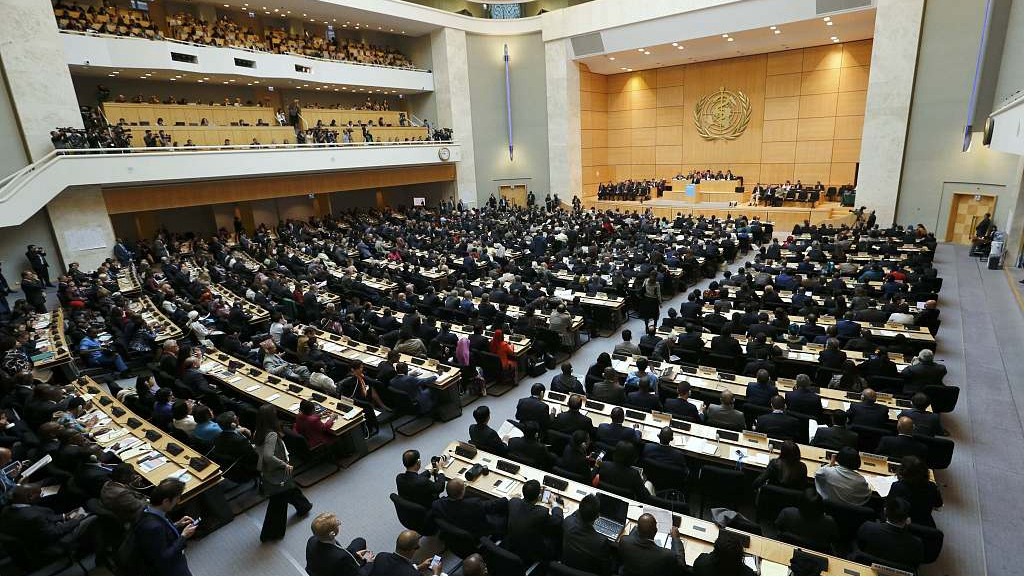
Health
19:53, 20-May-2019
China to showcase primary health care at World Health Assembly
CGTN

From universal health coverage to classifying video games addiction as a disease, members of the World Health Organization (WHO) will decide on a range of health issues during the 72nd World Health Assembly in Geneva.
Around 4,000 delegates from 194 member states are attending the weeklong conference from May 20 to 28. The theme of the assembly this year is “Universal Health Coverage: Leaving No-one Behind.”
With a population of more than 1.3 billion, China successfully achieved universal health insurance coverage in 2011. The achievement, termed “unparalleled” by the World Bank, has become an example for many developing nations.
Chinese delegates will share the country's experience of providing primary health care services.
China's experience is that the government has put people's health at the center of development, Nie Chunlei, head of the Department of Primary Health at China's National Health Commission, said at a press conference ahead of the 72nd WHA.
In the last decade, the central government has invested about 200 million U.S. dollars in recruiting some 50,000 medical school graduates for the county- and township-level health centers in central and western regions, Chunlei said, according to Xinhua.
Eradicating polio and controlling Ebola
The assembly will review the efforts to eliminate polio from the planet that have been delayed by conflict and anti-vaccine campaigns. The Ebola response team in the Democratic Republic of Congo (DRC) is also frequently facing violent attacks.
The Global Polio Eradication Initiative has been extended for the five-year period 2019–2023. The estimated budget for this extension is 4,200 million U.S. dollars, a WHA document said.
There are only three polio-endemic countries: Nigeria, Afghanistan, and Pakistan.
In Pakistan, anti-immunization rumors have become a significant challenge for polio eradication. The government recently announced a curb on social media messages spreading false information about vaccines.
WHO efforts to control Ebola in the DRC have been met with violence and a continuous rise in the number of cases. Attacks on the response team coupled with the virus spilling over to neighboring countries have forced the policymakers to revisit the health strategy.
Video games addiction likely to be officially declared a disease
Alarmed over the growing evidence of young gamers developing psychological problems due to video game addiction, WHA will put up the issue for a vote.
Last year, during the 11th revision of the International Classification of Diseases (ICD-11) WHO listed video game addiction as a disorder.
A decision on inclusion of gaming disorder on the new International Classification of Diseases (ICD-11) is based on reviews of available evidence and reflects a consensus of experts from different disciplines and geographical regions, a WHO statement said.
(Top Image: Delegates attending World Health Assembly in 2018. /VCG Photo)

SITEMAP
Copyright © 2018 CGTN. Beijing ICP prepared NO.16065310-3
Copyright © 2018 CGTN. Beijing ICP prepared NO.16065310-3